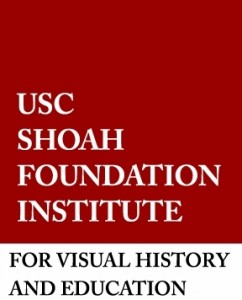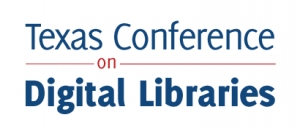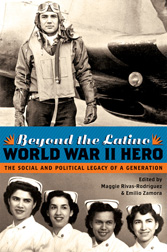%CODE1%
I suppose this proves that books are still relevant, but what about people?
Thoughts?
A High-Tech Library Keeps Books at Faculty Fingertips—With Robot Help
%CODE1%
I suppose this proves that books are still relevant, but what about people?
Thoughts?
A High-Tech Library Keeps Books at Faculty Fingertips—With Robot Help
It’s International Human Rights Day, and in the spirit of it, the Libraries can share news of its part in the opening of a new resource for the study of human rights.
Thanks in large part to the generous philanthropy of the Bridgeway Foundation in Houston, the Libraries established the Human Rights Documentation Initiative (HRDI) in 2008, its initial charge to preserve digitally the records of human rights abuses in the Rwandan Genocide.
Though HRDI’s mission has expanded in scope since that time – it has since established projects with the Free Burma Rangers and the Texas After Violence Project, and is currently negotiating new plans in Latin America – the project to collect, preserve and make accessible the Rwandan records has continued with itinerant staff constantly moving between Austin and Kigali, the site of the Kigali Memorial Centre where the fragile and sometimes anachronistic materials were being held.
Today, the project reaches a milestone with the inauguration of the Genocide Archive of Rwanda, a new and comprehensive repository for information related to the genocide. The physical archive housed on-site at the at the Kigali Genocide Memorial facility in Kigali will contain the original audiovisual, documentary and photographic materials in a secure, controlled environment. The digital archive will eventually contain copies of all audiovisual recordings and scans of all known documents and photographs will be accessible to researchers through a cross-referenced system that allows key word searches, first on-site and ultimately online. The Kigali Genocide Memorial will maintain network infrastructure, servers, and digitization and storage equipment for the digital archive, and a copy will also reside with the University of Texas Libraries.
Find more information about the project and the Libraries’ participation here.
You can see a featured interview video from the Archive here.
HRDI Archivist T-Kay Sangwand sat down for a reporter from National Public Radio’s Weekend Edition to talk about our role in the project. You can hear the interview and view some images from the Archive here.
T-Kay Sangwand is the Archivist for the Human Rights Documentation Initiative.
Since its inception in 2008, the Human Rights Documentation Initiative has garnered attention within the academic, archival, and human rights communities. At the Society of American Archivists (SAA) Annual Meeting this week in Washington D.C., the HRDI hopes to raise awareness of its preservation partnerships and connect with members of the archival community who are working on similar projects.
At this year’s Annual Meeting, the newly formed Human Rights Archives Roundtable will hold its inaugural meeting. In 2009, I worked with Valerie Love, Curator for Human Rights and Alternative Press Collections at the University of Connecticut, to establish SAA’s first Human Rights Archives Roundtable. The Roundtable “aims to create a space for SAA members and other stakeholders (human rights advocates, scholars, government officials, and non-governmental organization workers) to increase dialogue and collaboration on issues related to the collection, preservation, disclosure, legal implications, and ethics of human rights documentation.” The first half of the Roundtable meeting will be jointly held with the Latin American and Caribbean Cultural Heritage Archives (LACCHA) Roundtable and will feature the panel, “Silence No More! Archives Threatened by Political Instability in Central America.” The second half of the meeting will feature a presentation on the Center for Research Libraries’ “Human Rights Electronic Evidence Study” preliminary findings by project coordinator, Dr. Sarah Van Deusen Phillips.
SAA’s Oral History Section has invited HRDI Project Manager / Benson Latin American Collection Archivist, Christian Kelleher, to present on the HRDI’s work with the Kigali Genocide Memorial Centre and its collection of Rwanda Genocide survivor testimonies. The Oral History Section Meeting will feature three other speakers discussing archival projects with human rights and social justice components.
If you’re in the D.C. area this week, please join us!
 “An investment in knowledge always pays the best interest.”
“An investment in knowledge always pays the best interest.”
-Benjamin Franklin
You’ve probably heard the news that UT-Austin has initiated a plan to cut $14.6 million in expenditures for 2010 – 2011. Everyone on campus has been looking for places to trim back, trying to decide what is core and essential and what is just “nice to have.”
The UT Libraries has a long-standing commitment to staff training and professional development and that commitment has not wavered during these tough economic times. However, we have had to find creative ways to provide this training with fewer financial resources.
One approach we have taken is a program called Learning Breaks. Every other week, someone from the Libraries staff will do two 30 minute presentations, one in-person and one online through our online meetings software, about a topic in which they have expertise. This approach has allowed us to offer trainings on a wide variety of topics ranging from Web 2.0 applications such as Twitter, Flickr, wikis and blogs to time management practices such as managing your to-do list.
Since these topics are suggested by staff we know they fulfill a need. What’s more, the benefits of Learning Breaks go beyond what is learned in the training; this peer-to-peer model also allows the Libraries to recognize and value the expertise and diverse talents of the staff. And by incorporating ongoing training into the work day on a regular basis, Learning Breaks send a message that library staff are worth the investment.
Catherine Hamer is Interim Associate Director for User Services.
 As more and more information goes digital, the questions around the storage of all this data grow ever more important. UT Libraries is working on that question through its participation in a key university-wide initiative: the ITS Central Data Storage project committee. As the Associate Director for Digital Initiatives, I represent UT Libraries on this committee, which is working to cost-effectively expand centralized data storage services for the whole campus.
As more and more information goes digital, the questions around the storage of all this data grow ever more important. UT Libraries is working on that question through its participation in a key university-wide initiative: the ITS Central Data Storage project committee. As the Associate Director for Digital Initiatives, I represent UT Libraries on this committee, which is working to cost-effectively expand centralized data storage services for the whole campus.
First, a little background on digital storage: In 1991 the cost of a megabyte was about $13.00 and the largest drive you could buy held about 270 megabytes. Since then we have seen the cost of a megabyte decline steadily up till today when the average consumer can now purchase 1,058,576 megabytes (aka 1 terabyte) for $99.00, reducing the cost of 1 megabyte of storage to less than a penny.
So, how many megabytes does UT buy every year? Continue reading UT Libraries and data storage needs for the future
 On March 10-11, 2010 the UT Libraries Human Rights Documentation Initiative (HRDI) hosted a visit from the USC Shoah Foundation Institute for Visual History and Education (SFI).
On March 10-11, 2010 the UT Libraries Human Rights Documentation Initiative (HRDI) hosted a visit from the USC Shoah Foundation Institute for Visual History and Education (SFI).
Best known for its extensive archive of 52,000 Holocaust survivor testimonies, the USC SFI continues to expand its programming to include testimonies from genocide survivors worldwide. Dr. Stephen Smith, Executive Director, Sam Gustman, Chief Technology Officer, and Karen Jungblut, Director of Research and Documentation, met with members of the HRDI team to discuss opportunities for collaboration on their respective projects in Rwanda as well as best practices for digital preservation and metadata exchange. Continue reading HRDI meets with Shoah Foundation
 This past month, the Texas Digital Library (TDL) and several prominent water researchers began the process of developing a new collaborative resource for sharing water data across the state of Texas. The Texas Water Digital Library (TWDL) will federate water research currently stored in dispersed databases and websites at various Texas universities. A model for the cooperative efforts of the Texas Digital Library, the TWDL will electronically harvest these resources from cooperating institutions (using a technology called OAI-ORE) and deposit them in a TDL-hosted DSpace repository. This federated repository will create a single place for researchers to search for water data from every part of the state: the Texas Water Digital Library. Continue reading Texas water researchers working with the Texas Digital Library
This past month, the Texas Digital Library (TDL) and several prominent water researchers began the process of developing a new collaborative resource for sharing water data across the state of Texas. The Texas Water Digital Library (TWDL) will federate water research currently stored in dispersed databases and websites at various Texas universities. A model for the cooperative efforts of the Texas Digital Library, the TWDL will electronically harvest these resources from cooperating institutions (using a technology called OAI-ORE) and deposit them in a TDL-hosted DSpace repository. This federated repository will create a single place for researchers to search for water data from every part of the state: the Texas Water Digital Library. Continue reading Texas water researchers working with the Texas Digital Library
 This article on the departure of the legacy catalog at the University of Michigan recalls the renovations in Life Sciences Library here at the University of Texas, where card catalogs were removed to create space for new seminar rooms for the Undergraduate experience, as well as the removal of a large bank of card catalogs from the Perry-Castañeda Library almost three years ago.
This article on the departure of the legacy catalog at the University of Michigan recalls the renovations in Life Sciences Library here at the University of Texas, where card catalogs were removed to create space for new seminar rooms for the Undergraduate experience, as well as the removal of a large bank of card catalogs from the Perry-Castañeda Library almost three years ago.
The Michigan move also presages a similar development for those remaining catalog records at the PCL as the library responds to growing demands for student spaces.
Perhaps, though, we’ll follow our colleague Paul Courant’s lead and retain as an artifact a solitary catalog over which the students of tomorrow can ponder a more austere time.
![]()
 This spring, on May 17-18, the Texas Digital Library (TDL) will be hosting the 2010 Texas Conference on Digital Libraries (TCDL) at The University of Texas at Austin. In its fourth year, TCDL provides a forum for TDL members and others to explore issues related to digital libraries and digital scholarship.
This spring, on May 17-18, the Texas Digital Library (TDL) will be hosting the 2010 Texas Conference on Digital Libraries (TCDL) at The University of Texas at Austin. In its fourth year, TCDL provides a forum for TDL members and others to explore issues related to digital libraries and digital scholarship.
The TCDL 2010 conference theme is Collaboration, and the conference program will be packed with experts speaking on issues of partnership and cooperation in the service of advancing scholarly communication.
The TDL is especially excited to announce its two keynote speakers for the event: Dr. Leslie Carr, of the School of Electronics and Computer Science at the University of Southampton, and Dr. Reagan Moore, from the School of Information and Library Science at the University of North Carolina at Chapel Hill.
Continue reading Conference at UT Austin to feature experts on digital libraries
 The Center for Mexican American Studies hosts a discussion of Beyond the Latino World War II Hero: The Social and Political Legacy of a Generation (University of Texas Press, 2009) with editors Maggie Rivas-Rodríguez and Emilio Zamora today at 4 p.m. at El Mercado Uptown, 1702 Lavaca St.
The Center for Mexican American Studies hosts a discussion of Beyond the Latino World War II Hero: The Social and Political Legacy of a Generation (University of Texas Press, 2009) with editors Maggie Rivas-Rodríguez and Emilio Zamora today at 4 p.m. at El Mercado Uptown, 1702 Lavaca St.
Beyond the Latino World War II Hero extends on the work of the U.S. Latino & Latina World War II Oral History Project which was founded by Rivas-Rodriguez. The project has interviewed more than 650 men and women of the World War II generation and has multiple components, including a photographic exhibit, a play, three books, and a website which was developed with and hosted by the University of Texas Libraries.
Maggie Rivas-Rodríguez is Associate Professor of Journalism at the University of Texas at Austin and in 1999 founded the U.S. Latino & Latina World War II Oral History Project. Emilio Zamora is Associate Professor of History at the University of Texas at Austin and the author of The World of the Mexican Worker in Texas.